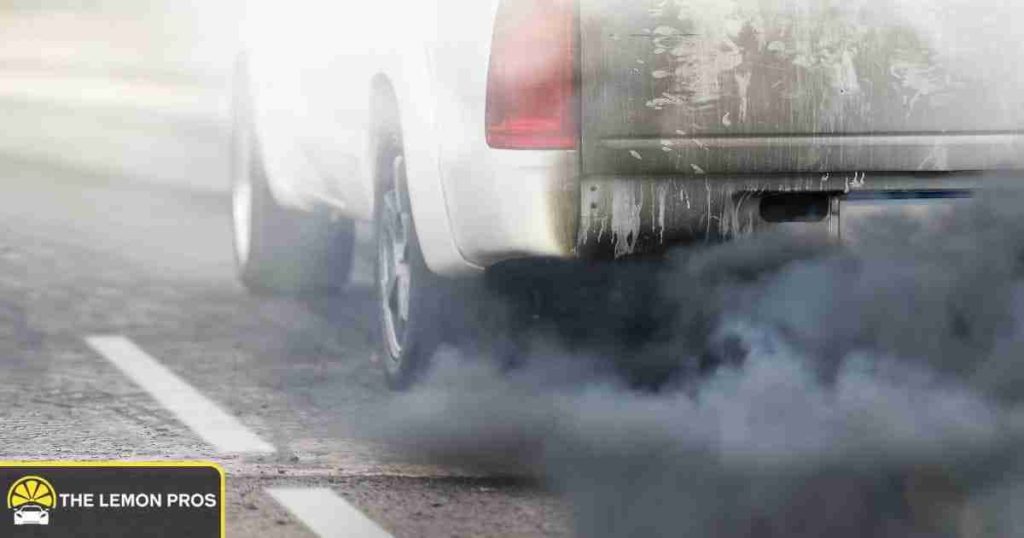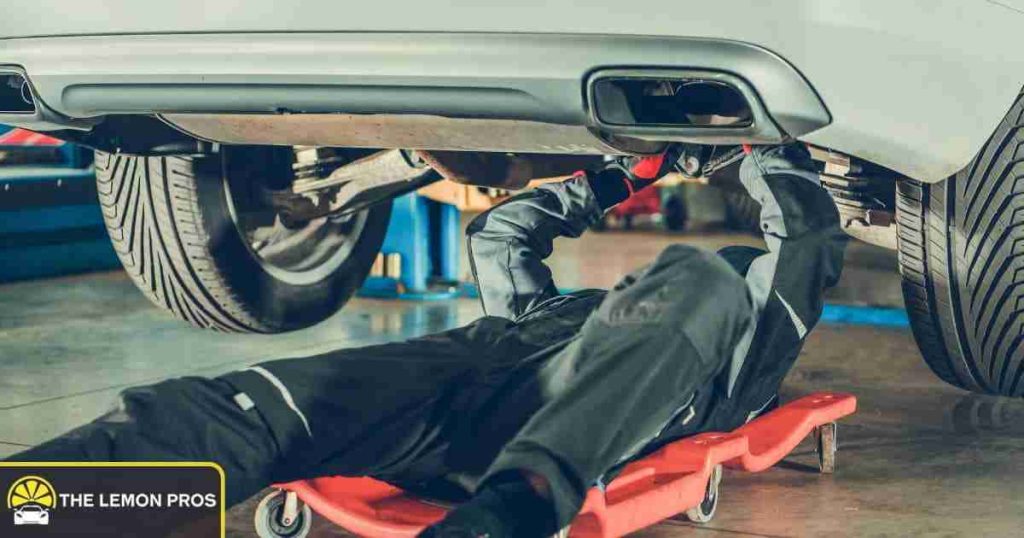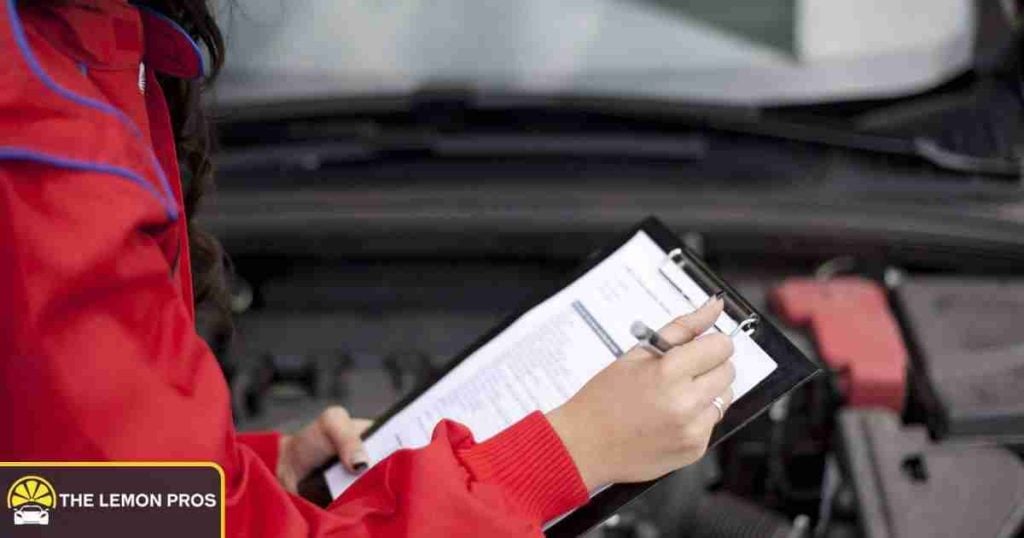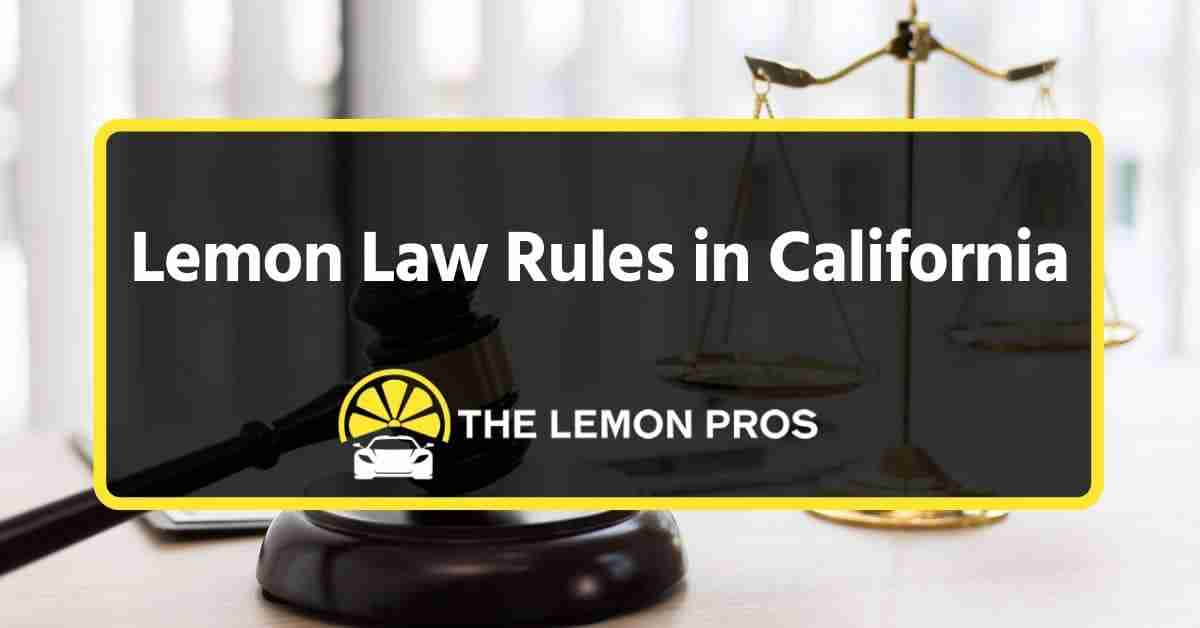
How Do I Know if I Have a Lemon Car?
It is clear that no one wants to purchase or lease a lemon, but unfortunately, this happens to millions of people. Thankfully, there are some early warning signs that can alert you that your vehicle may be a lemon. It is important that you identify these problems as early as you can because driving a lemon can be dangerous. Many of these problems can substantially affect your vehicle’s use, value, and safety.
A lemon is a defective vehicle that’s still covered by a manufacturer’s warranty but cannot be repaired in a reasonable number of attempts. In California, state lemon laws apply to both new and used cars.
Contact The Lemon Pros as soon as your realize that your car may qualify. Because we’ve helped thousands of other clients in California get compensation for their defective vehicles, we can fight for your rights too. With a free Lemon law consultation, you’ll know just how much to expect for your defective vehicle.
Because lemon laws vary between states, it’s important to consider what California’s regulations are. In this guide, we teach you how to know if your car is a lemon, show you what to do about defective motor vehicles, and supply information about Lemon law claims.
Table Of Contents
How Do I Know If I Have a Lemon in California?

Is my car a lemon? According to Lemon law regulations, any vehicle covered by the manufacturer’s warranty that has unrepairable issues may be considered a lemon. The problems must be first noticed within 18 months or 18,000 miles of taking possession of the vehicle. Its substantial defect must impair the safety, value or use of the car. Because some used cars, such as Certified Pre-Owned (CPO) vehicles, may also be covered by the warranty, Lemon law protections are also available in certain circumstances.
How do I know if my car is a lemon? Before filing a Lemon law claim, it’s essential to make sure the vehicle qualifies based on the following criteria:
- It’s covered by the manufacturer’s warranty or an extended warranty provided by an authorized dealer.
- Issues dramatically affect the use, value or safety of the vehicle.
- Despite having warranty repairs performed, the issue cannot be fixed within four visits (two if serious safety issues are present). Additionally, the service department cannot have your vehicle for more than thirty days total.
Thankfully, there’s no reason to keep driving a vehicle that is classified as a lemon. With today’s regulations in place to protect consumers, you have the chance to get a replacement vehicle or monetary compensation for your lemon vehicle.
Does a Car Need to Be Bought From a Dealer for Lemon Law?
For Lemon law protections to be in place on your new vehicle, the car must be purchased from an authorized dealer. The same applies if you want to start the legal process on a used vehicle with a warranty. Buying from a private party doesn't offer you any legal protection.
Signs That You May Have Purchased or Leased a Lemon

Because the California Lemon law time limit is only four years (statute of limitations), it’s important to file a claim as soon as your vehicle qualifies. Here are some of the most common problems and signs that you are driving a lemon car.
Steering Problems:
- The steering wheel is shaking or there is “play” in the steering wheel.
- The vehicle drifts to one side and you often need to correct the direction.
- Cracking noises when doing a “U-turn” at low speeds.
When you begin to drive your vehicle, pay attention to steering problems because they will be indicators that your vehicle’s steering may be defective, damaged, or worn out. Steering problems can be extremely dangerous at high speeds. It is important that you take your vehicle to an authorized service facility if you are experiencing any of these problems.
Tire Problems:
- Wearing unevenly, such as wearing on the outside instead of the middle.
- Cracking or there are cuts in the sidewalls.
- Tires are causing excessive road noise.
- Bulges or blisters in the tires.
- Tires are causing excessive vibration.
The vehicle’s tires can be an indicator that you purchased or leased a lemon. The tires are extremely important to your vehicle’s safety because all it takes is for just one tire to be defective to cause an extreme safety risk. Make sure you keep an eye on your tires.
Exhaust Smoke:

- Black smoke coming out of the tailpipe can mean that your vehicle is burning too much fuel.
- Blue or gray smoke can mean that oil is being burned in the engine.
- Thick white smoke can mean that your engine is burning coolant and can lead to overheating.
If your vehicle is releasing anything other than thin white vapor, you may have a lemon. If any of these problems occur on your vehicle early on, they will only get worse. These problems don’t just go away. If you experience any of these, make sure you immediately take your vehicle to an authorized service facility.
Engine or Transmission Problems:
- Check engine light illuminated
- Excessive oil (fluid) consumption or leaks.
- Whining, rattling, or ticking noises.
- Loss of power, stalling, or rough running.
- Trouble shifting gears.
If you are having any issues with your engine or transmission as soon as you purchased or leased your vehicle, it may be a sign that your vehicle is a lemon. The engine and transmission are considered the heart of your vehicle and these parts dramatically affect how long your car will run.
Recalls:
- Excessive recalls
- Safety-related recalls
Recalls are issued by the manufacturer when a certain model vehicle has factory defects. Before and after you purchase or lease your vehicle, you should check the National Highway Traffic Safety Administration’s website for applicable recalls on your vehicle to make sure that you don’t get a lemon. You can file a Lemon law claim if the service department fails to resolve a recall in a reasonable number of repair attempts.
The Service Facility Did Not Repair the Vehicle

If an authorized repair facility attempts to repair your vehicle two or more times for the same problem within the warranty period, and the problem is not fixed, or if the authorized repair facility takes longer than 30 days, it is likely that your vehicle will qualify as a lemon.
Steps to Take if You Suspect Your Car Is a Lemon
Now that you know how to tell if your car is a lemon, it's time to take action. If you feel that your car has significant defects that substantially impair the use, value or safety of the vehicle, you must act quickly. Based on state law regulations, these are the steps you want to take when filing a Lemon law claim for a new or used car.
Documenting Issues
To receive compensation through lemon laws, it’s important to have all of your documentation in order. You need to have the car warranty paperwork, the lease or purchase agreement, with the purchase price listed and any communication record with the car manufacturers or repair shop. By keeping these detailed records, you’ll be able to easily prove that there’s a substantial defect that hasn’t been fixed in a reasonable number of repair attempts.
Communicating With the Dealer or Manufacturer

If you want protection through lemon laws, you want to communicate effectively with the manufacturer and dealership. While there’s no reason to be a nag about getting your car back within days of taking it to the shop, you do have rights as the vehicle owner or lessee. Ask the service department how long repairs are going to take and follow up as that timeframe approaches. Let them know that you understand lemon laws and you aren’t willing to accept any less than a complete repair. With every communication, document the interaction and double-check your repair orders to ensure that the complaints have been noted.
Seeking Legal Advice About Lemon Laws
As soon as you realize that the car is suffering from the same defect even after the dealership has attempted to repair it, it’s time to take legal action. An experienced attorney will help you decide the next steps, so you want to get a free consultation as soon as possible. Because California Lemon Law can be complicated, it’s best if you allow the professionals to file the claim for you. Otherwise, a small mistake could make the difference between compensation and you driving a lemon.
Filing a Lemon Law Claim
Before you end up in a major accident, it’s vital to file a claim through lemon laws. Once you know your car meets the qualifications, you need to send a demand letter to the manufacturer. This letter tells them of your intent to receive compensation because the known issues haven’t been addressed. After this letter is sent through certified mail, the manufacturer has the option to deny the request, offer arbitration, or discuss mediation. In some cases, the claim needs to go before the courts to hold the manufacturer accountable for selling new vehicles with defects.
How to Prevent Buying a Lemon

Consumers have a lot of protection available, but it’s best to avoid buying a lemon in the first place. Before purchasing any vehicle, check to see if the brand and model have received good records and reviews from other customers. You can check sites such as Edmunds, Consumer Reports, and J.D. Power to see how the vehicles rank. While Edmunds and J.D. Power offer free information, you may need to pay a small fee to access content from Consumer Reports.
If you are purchasing a used vehicle, there are other steps to consider. You want a vehicle history report that shows if the car has been in an accident or has had serious recalls. It’s also important to only purchase used cars from a reputable dealership.
Test Drives and Checks
While you are at the dealership, make sure you take the car for a test drive. By taking the car on various roads and trying out the available equipment, you can determine if there’s anything wrong with it before buying it. You should also get a mechanic to provide an inspection of any used car before buying it. While this step does cost a little money, it’s a small price to pay to weed out most lemons.
Need a Lemon Law Attorney?
While most states have protection for lemon cars, California has some of the best laws available. As soon as you realize that your car qualifies under the law, you should begin the process of getting a replacement vehicle or compensation. There’s no reason to be left with a car that has no fix for the defects, and the manufacturer should always be held responsible.
With the help of a lemon car lawyer in California, you don’t need to keep driving the defective automobile you recently purchased or leased. We at The Lemon Pros protect consumers by getting compensation from the manufacturer for defects that the dealer can’t repair. Get your free Lemon law consultation and find out what you are owed.
If you are saying my car is a lemon, there's no reason to be discouraged. It’s time to get out of your lemon car, and we can help. Visit our Lemon Law Attorney Practice in Beverly Hills.






